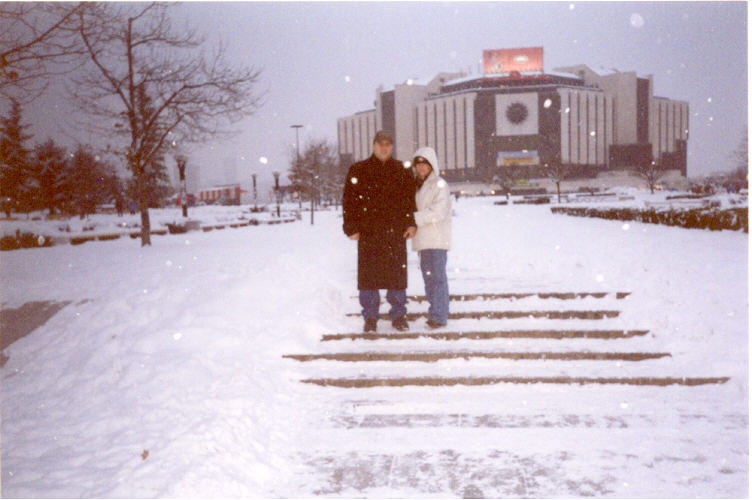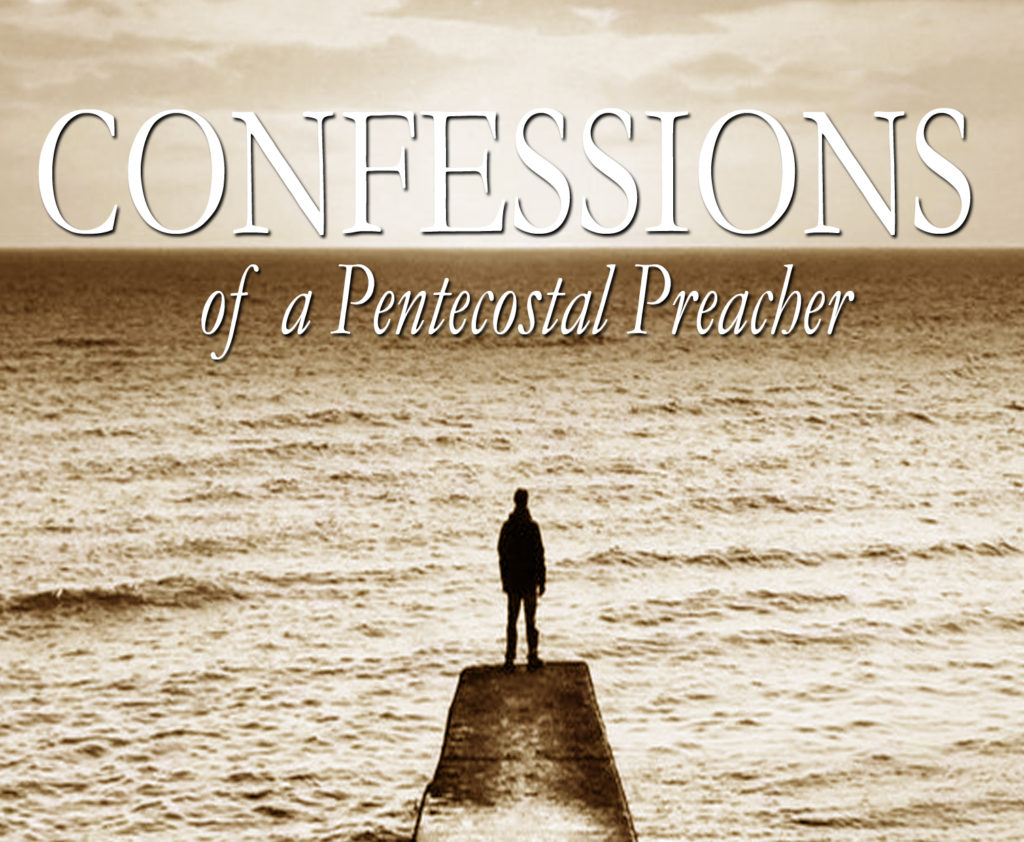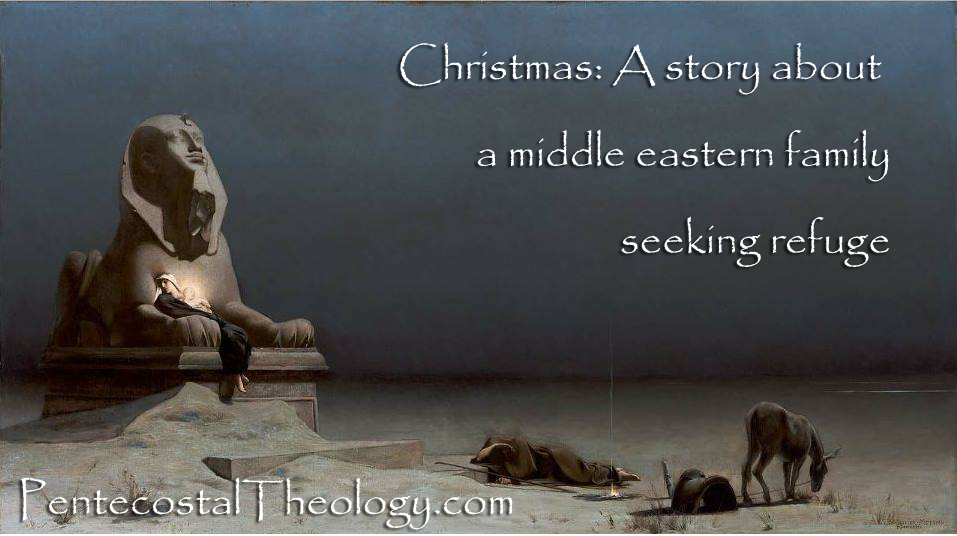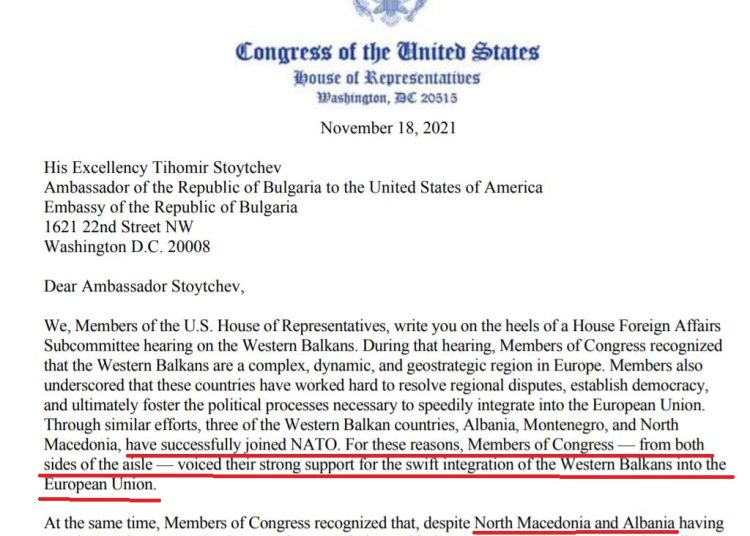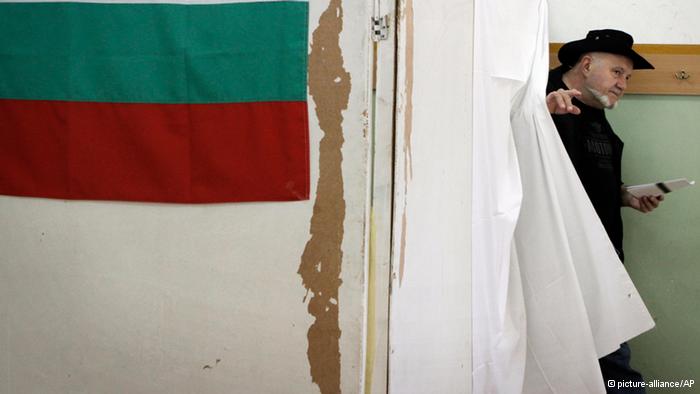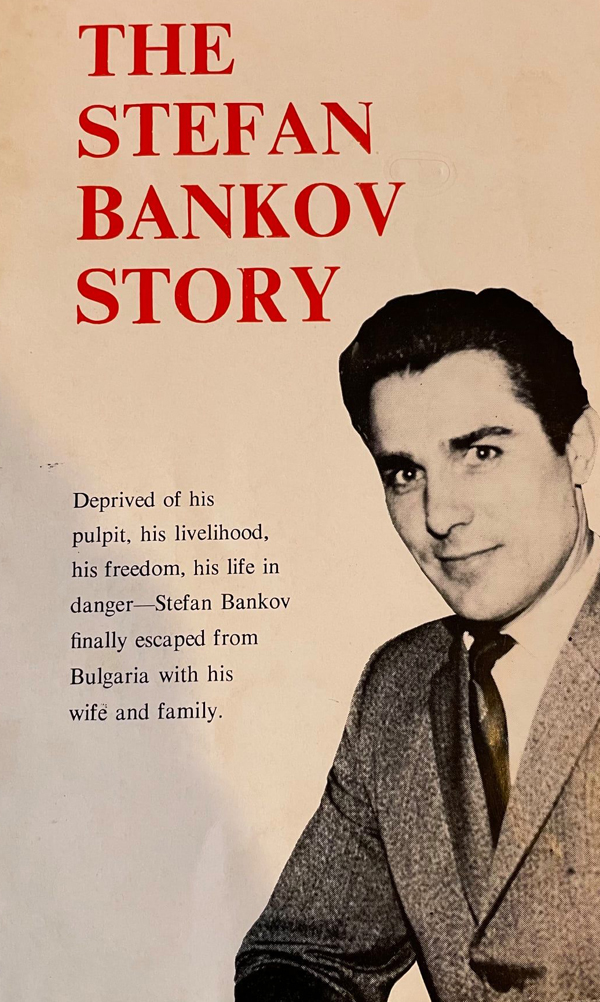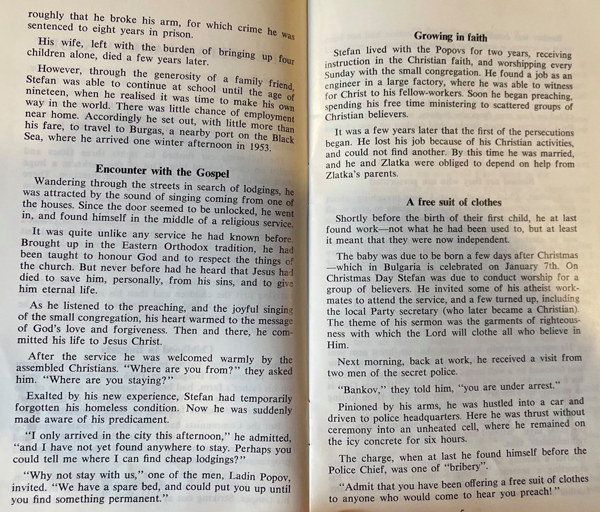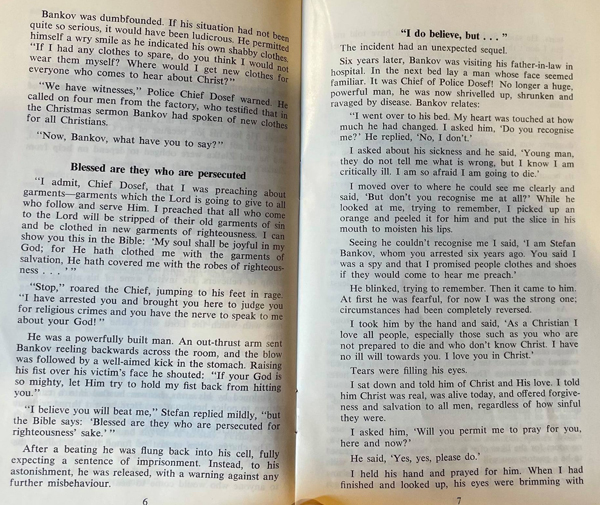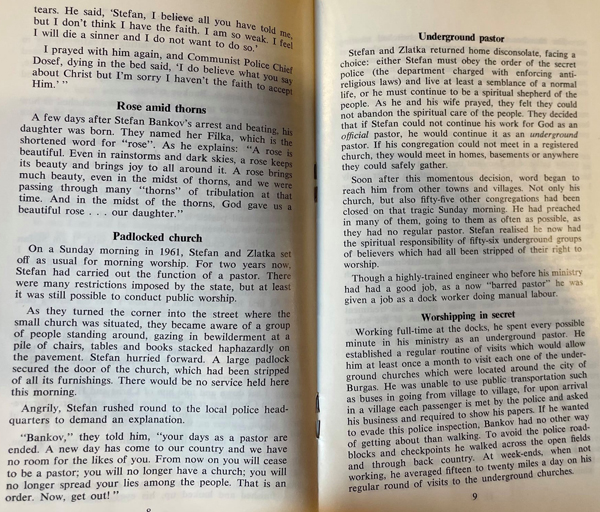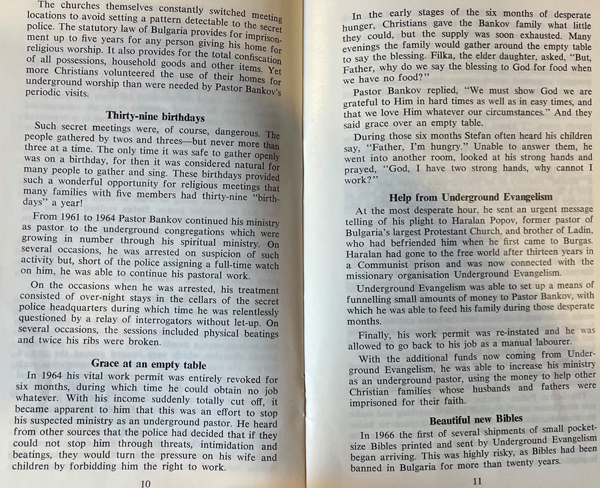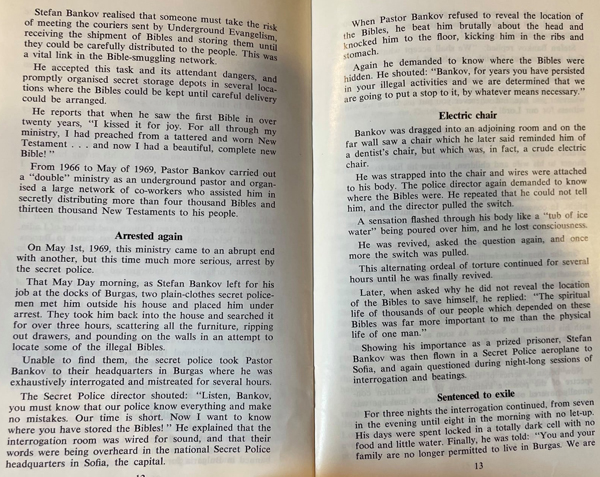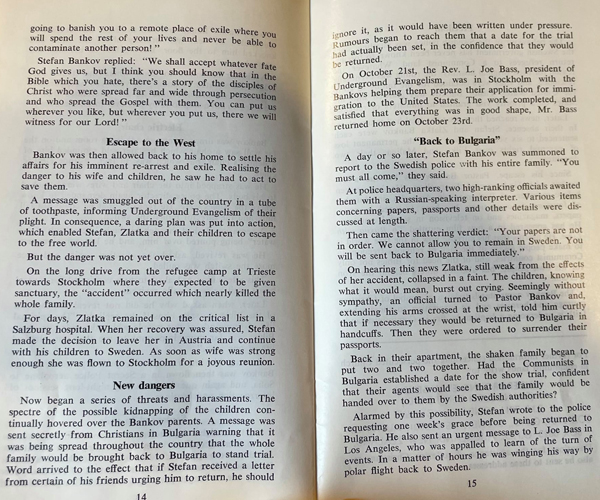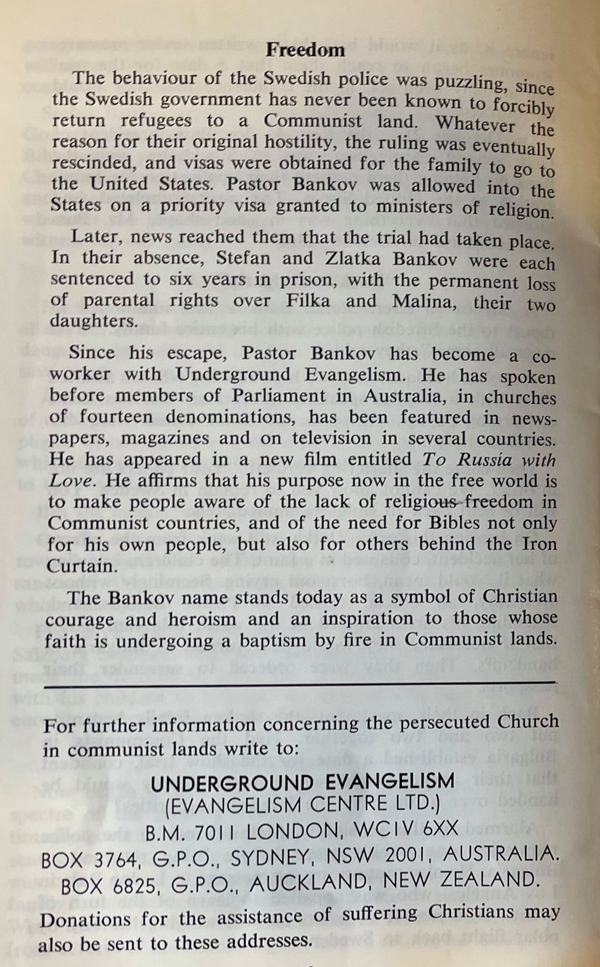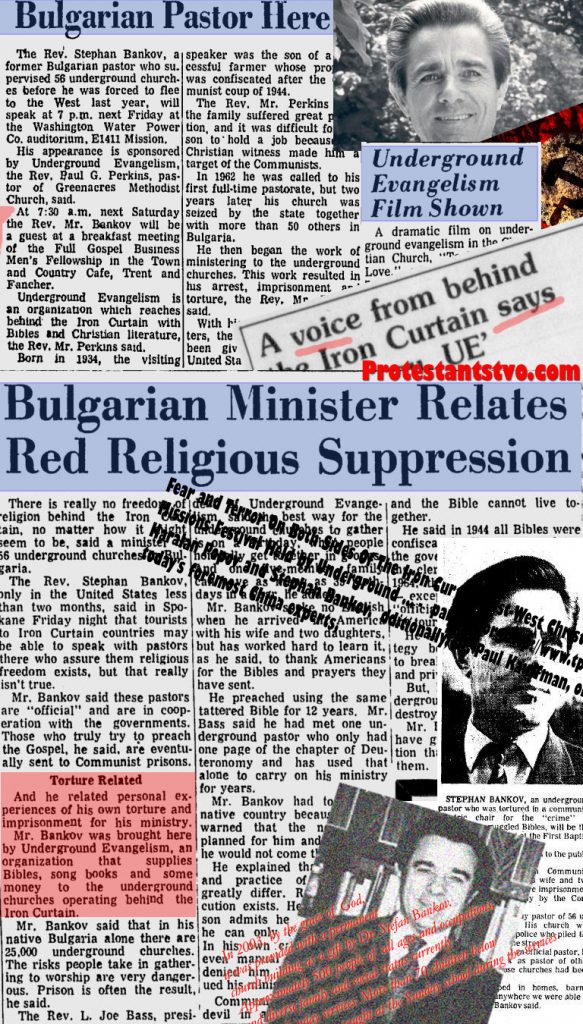The Central Church of God Ministry Center in Sofia (Bulgaria) Today
At the end of each year, we have made it a tradition to share the projects completed in the past months of hard work and labor for the Kingdom. But as we are approaching now 20 years of ministering and teaching with the Church of God denomination together, we have decided to recall some more long-term projects.
Exactly 20 years ago, my wife landed in Sofia, Bulgaria for the first time on a snowy December day. In fact, it was so cold that my mother worrying she would be coming from a much warmer subtropical climate, bought the biggest winter jacket she could find, so we could wrap her with it on the way from the airport. Not the most glorious meeting or welcome party as I recall it today.
I was eager to show her my Church, the Bulgarian Church of God, then second to none in the country with 32,000 membership strong and 400 congregations. Many of them newly started and 28 of them in the two-million people capital alone. The Central Church of God in Sofia, where I preached and ministered in 2001-02, had almost 1,200 people at that time. Its main meeting place was the multifaceted Church of God Ministry Center in a prime location in the growing European capital – a project we had undertaken in 1998 with the faithful will and support of some two dozen Church of God congregations from Florida. The documents from my personal archives tell the story best:
December 2, 2001 – I had just returned from Romania bringing with me World Missions Director Lovell Carry and Field Director (Central/Eastern EU/CIS) Dieter Knospe. They were in Bulgaria on a special visit to transfer the new building to the ownership and operation of the Central Church of God in Sofia per the contract signed with our overseer in the Spring of 2001.
The days of Ministry Weeks 17-19 that followed in December, 2001 and which my wife recorded here: https://cupandcross.com/2001/12/ are excruciating to even remember today. Sunday service with Sunday School and preaching, then again on Tuesday, Wednesday and Thursday. Then special Saturday services in Pravetz and many other places. Similar schedule plus the traditional celebration services in the following Christmas week. Repeat again for the New Year’s week. And all of these done in extremely cold weather and tons of snow on the ground – so much that my wife was delayed for days leaving for the States mid-January with all flights out of Sofia cancelled as the ice never melted enough to clear the runway and defrost the airplanes.
And all through this, the building never stopped. Regardless of all difficulties, we were all working eagerly and anticipating greater results. The multifaceted Church of God Center in downtown Sofia was to encapsulate all our ministries and many more, giving our young freedom generation the opportunity of a lifetime to make a difference for the Kingdom…
Today, when the building of our Ministry Center is being sold and it will be used for something the will of the donors never intended it to be, our Church of God denomination in Bulgaria is split to no less than 12 fractions all registered since 2005. All of them still carry a variant of the Church of God name and consist of the same people I grew up with under the Communist Regime of Bulgaria. We were promised a democratic leadership formed by indigenous people, but instead ended up with mini-bosses, regional micromanaging oversight, multiple splits and everything that characterizes a very typical colonial type of missions.
With the church organizations split time and again until torn into pieces, many of my peers chose alternative paths. Some left the ministry, others were hurt or divorced, a few even died and many simply gave up and moved on. With the rest, I have an appointment at the End of the World!
But none of this gives any pleasure or satisfaction to share. Especially when reminded that the dreams we all once dreamed are now hang on the willow trees by the rivers of Babylon. When reaching those waters of deeply troubled cross-cultural crises of faith and conviction, all bridges to people have sunken with no hope to recover again. God’s Kingdom has no gain in any of this!
Our prayer has hence turned into a prophetic protest for a new reality – not merely for a new mission paradigm, but one of a whole new mission… A Spirit-led ministry that forgoes all man-made politics and business-like models, but instead aims to build a New Church that is nothing less than the very cross-road where we encounter God and others in the Spirit of Pentecost.
CONFESSIONS of a Pentecostal Preacher
To Mark Alan
We know not why good people have to die,
but we do know we must tell their story…
Chapter I: Beyond the Church and into God
Be without fear in the face of your enemies.
Be brave and upright that God may love thee.
Speak the truth always, even if it leads to your death.
Safeguard the helpless and do no wrong.
That is your oath.
~Kingdom of Heaven (2005)
Separation of church from politics of false religiosity
The phone rang heavy and long. It was 4 AM in Bulgaria, but I was already up. A friend on the other end of the line was calling from South Carolina with a warning of some bad situation. The following morning, I was going to be contacted by the Director questioning why we were ministering in churches outside of our denomination.
The truth was we had ministered in some 300 local churches across the Balkan country of Bulgaria crossing all denominational boundaries and gathering youth from just about every confession. God had used us not only to reach and minister and to lead, but to step into an untouched spiritual realm, to undertake an unfamiliar ministry paradigm and to approach a brand new dimension of reality where He was to be the center of it all. And we had obeyed without questions. Now it was time to pay the price!
* * *
Our denomination, the one to which I remain both critically loyal and loyally critical, spreads over some five generations. Through its century old existence, the struggles and tension between theology and praxis has been in the center. And there, in the very essence of Pentecostalism itself, while some are always celebrating and being celebrated in the office or temple, others are always pushed in the periphery of normal life, hidden from the world behind closed doors and seeking a much deeper experience with God.
These modern day mystics are not only forgotten, but often forbidden. For their riot for righteousness cannot be conceived, contained and controlled by the religious norms of organized officiality. They speak as prophets to a world they so fervently try to escape from, about a reality that does not exist in the normal believer’s mindset. A stage of spirituality that cannot be preached without being lived in the social existence. And a relationship of God that goes far beyond common relationism and into God himself. That God, Who does not abide in offices and temples, but on the cross outside of the city walls…
But I knew nothing of this until that cold winter morning when the phone rang through darkness of the night. Knowing what is coming, rarely changes what we have done to get here.
7 Years in Bulgaria: CONFESSIONS of a Pentecostal Preacher
by Dony K. Donev, D.Min.
Upcoming Releases for United States (October, 2020)
Restorative Significance of the Gifts Given to the Christ Child
It is recorded that the Magi gave the Christ Child three gifts upon his birth; gold, frankincense and myrrh. We understand the gold today as a physical gold, representing His kingship and the other two as an incense to symbolize his priestly role and oil for his foreseen death. Yet, what if the gold that was given to the Christ child was for another reason and perhaps it was not “gold”, but a golden spice or a golden salt. Of the gifts, one could be ingested, one could be inhaled and one could be absorbed. If we look at all from a medicinal viewpoint, these three gifts may have more symbolic meaning than once perceived.
MAGI
So who exactly were the “Magi”. We know that they followed the stars and were from the East. The East was a region of the world known, at the time, for its great knowledge of natural remedies. So it is not unimaginable that they could have been natural healers or homeopathic doctors of their times. This could explain the hypothesis that all three gifts had a therapeutic purpose in the life of Christ.
GOLD
If we view the gold in compound form, it can be used in the treatment of rheumatoid arthritis. Gold is a type of disease-modifying anti-rheumatic medicine (DMARD) that dampens down the underlying disease process. This meaning it treats inflammation and stops the immune system from attacking its own body’s tissue. Gold can also be used to treat other auto-immune conditions. If we think of the gift of gold as a spice, the first one that comes to mind is curcumin which is known as the “golden spice” of the East. It also has the ability to reduce inflammation and provides immune system support along with anti-cancer effects. This golden spice seems to have the ability to kill cancer cells and prevent their regrowth.
FRANKINCENSE
When frankincense is inhaled, it is the most effective method of delivery to send a chemical message to the brain. The oils in frankincense have a high level of sesquiterpenes, an agent found in plants that has the ability to go beyond the blood-brain barrier. Sesquiterpenes from frankincense increase oxygen availability in the limbic system of the brain which leads to an increase in secretions of antibodies, endorphins and neurotransmitters. In layman’s terms it has the ability to go straight to the brain without traveling through the bloodstream and brings healing properties to reset and repairs its internal communications. It’s almost as if it can unlearn a disease or degenerative disorder passed down in our DNA.
The amygdale glad of the brain’s limbic system plays a major role in storing and releasing emotional trauma. The only way to stimulate this gland is with fragrance or the sense of smell. This may help us understand how we are able to release emotional trauma with aromatherapy of frankincense.
MYRRH
Myrrh also can arouse the limbic system to release emotional trauma. It also has anti-inflammatory and immune boosting properties among with many other health benefits. Once applied to the body, oil molecules pass through dermis, into the capillaries and directly into the bloodstream.
The substance know as monoterpenes are present in almost all essential oils. They are what enhances the therapeutic values of other components and are the balancing portion of the oil. They inhibit the accumulation of toxins and restore the correct information in the DNA of the cell. Sesquiterpenes are also found in myrrh and delete the bad information in cellular memory or memories that are hypothesized to be stored outside the brain in the body.
REMARKS
This is quite interesting, to say the least, that all three gifts can protect the body from such dramatic trauma. The body of Christ from infancy was being safeguarded against what was to become his destiny of great suffering and pain. The cathartic releasing of emotional trauma provided with the gift of frankincense would lay the foundation for the harrowing experience of death by crucifixion.
All three offerings had anti-inflammatory properties and helped support the immune system by preventing the system from attacking its own body’s tissue. Christ’s earthly body was protected right down to the minuscule cellular level. Even the cellular memory of his body was restored with these gifts. At a molecular level, His Heavenly DNA was being guarded. The gifts purposed to protect the Christ child’s from disorders genetically passed down and to restore the information in the cells of the DNA.
One gift was for the body, one was for the blood and one was for the brain. One gift purposed to go beyond the blood-brain barrier while the other was via the bloodline. The Christ child was both a descendant of a Heavenly father and an early mother. The father’s bloodline was supernatural while the mothers’ was a physical line.
We will never truly understand this side of Heaven all the care that went into protecting the Christ child. Yet since we are descendants of a Perfect Deity, we too have this promise of complete restoration of curses, sickness, disease, imperfections, degenerative disorders, mental impairments, and any physical, mental or spiritual attack of the body, mind and soul. We have been given a choice of living a life of blessing or curse. Just as the gifts of the Christ child had to be accepted, we too much choose to accept this promise.
Bulgaria Set for Yet Another Election in the Spring of 2022
Current Socialist Bulgarian President won a second term with the overwhelming support of President Biden. However, during the election debates, President Radev slipped and claimed the Ukrainian Crimea belonged to Russia. By the time the election results were finalized on Monday, both the European Union and the U.S. Embassy in Bulgaria issued notes of warning stating that, Crimea is part of the Ukraine and is currently under Russian occupation. Also on Monday, U.S. Congress forwarded a letter to the Bulgarian government for an immediate decision on the acceptance of Macedonia in the European Union.
These escalations occur in the midst of Bulgaria unable to form a government after three consecutive elections in 2021. As it is highly improbable the current election winner with only 26% will be able to form a government without a political majority, another election may be on the horizon of 2022.
Apart from the Crimean and Macedonian questions, the next Bulgarian government has committed to President Biden’s tri-sea initiative leading to most drastic political restructuring as follows:
1. Accepting the cross-gender Istanbul Convention
2. Pushing Bulgaria toward military involvement in the Crimean Crises
3. Opening Bulgaria as a regional big-pharma hub for modern vaccine testing
Changes in the Bulgarian Constitution may push the country from Parliamentarian to a Presidential republic alike the Russian model set by Putin’s “democracy.” But before all this happens, an actual government will have to be formed in the midst of a very cold winter with rising gas prices and electricity prices already increased by some 30%. Drained by the 2020 pandemic and with no government help or any tax break, the evangelical churches in Bulgaria are not prepared for any of these new challenges.
Bulgaria: What to Watch for in the November 14 Elections
Although the third for the year, on November 14 for the first time the elections will be 2 in 1 – for president and MPs. The vote is taking place at the peak of the fourth wave of coronavirus in Bulgaria and anti-epidemic measures will again be observed, and the number of those who voted with a mobile ballot box will be clear on election day.
For the second time, the voting in the sections with 300 and more voters will be only with machines, but for both votes the voting procedure will be with one device, and it will be necessary to indicate what to vote for and wait for the printing of two receipts. Therefore, it is expected that the process will be slower, and if the cases of patients in the coming days increase – this will affect the turnout.
In front of the voters
The third election of the year will be held at the peak of the fourth wave of the coronavirus epidemic, which may be a cause for concern among some eligible voters. For now, there will be no stricter anti-epidemic measures in the polling stations and they will remain known until now – wearing masks, disinfection, distance and frequent ventilation in the premises. From the previous two votes it cannot be concluded that the incidence will be denied by voters, as on April 4, when the peak of the third wave was, voter turnout was 50.61%, while on July 11, when there were few registered cases – only 42.19% .
Quarantined voters will be able to ask to vote with a mobile ballot box at the address where they are isolated, even on election day. It would be an obstacle if by the day of the vote in a given settlement there is no section for quarantined, as a condition to have only 10 applications submitted before. However, the Central Election Commission did not know whether it would be possible to open so many quarantined sections in recent weeks.
For the first time this year, the elections will be 2 in 1 – for president and MPs, which could lead to delays and queues in some sections. In the sections with 300 and more voters, the voting is only with machines, and the voting time is expected to be 5 minutes again.
There are two points that a voter using a device should be aware of. The first is at the beginning, when the machine asks which type of election the voter wants to vote for and whether for both – he/she can mark once and by continuing, confirm, after which he/she has no right to correction. The second is when printing the segments with the choice at the end – if the voter has exercised his/her right to vote in both votes, he/she must wait for the machine to print two receipts – one short and one longer, and pull them out after hearing a beep. If it does so while printing, the machine may lock.
The voter will also have a problem if he/she decides to take pictures of how they vote, as the recording of the vote is prohibited and the sanction is BGN 1,000.
Possible problems for the election commissions
There seem to be two main challenges for sectional election commissions – one is related to the machines and the other is to the counting of the voting receipts.
The problems with the machines can be of different nature – technical malfunctions, errors in the lists as on April 4 in Veliko Tarnovo, when there were exchanged names and numbers in one of the candidate lists, errors in cleaning, which can only be done with alcohol, etc. . A technician will be available, but if the fault is not rectified, a paper ballot will be put to the vote following a decision by the district or central commission.
Difficulty and delays in reporting the results would be caused by the decision to count all machine voting receipts, which were taken by the Central Election Commission but revoked by the Supreme Administrative Court. The commission should now determine in how many and in which sections the control receipts should be counted, and the result will be taken from the protocol printed by the machine, and the result of the control count will not be entered in the protocol.
However, the count will slow down the section commissions where it is done. After the end of the election day, the commissions will have to open the box with the receipts, divide into two piles those for the presidential and those for the parliamentary vote and then count, without taking into account the preferences for MPs. According to experts, voluntary or unintentional human errors are possible during the counting, as well as manipulations by destroying part of the receipts. This will certainly delay the transmission of the results to the district election commissions.
THE STEFAN BANKOV STORY
October 25, 2021 by Cup&Cross
Filed under Featured, Missions, News, Publication
One of them was Dr. Stefan Bankov, perhaps the immigrant with greatest influence for the Bulgarian Protestant scholasticism. Immigrating to the United States in 1969 after being severely persecuted in Bulgaria, Bankov earned a doctoral degree in theology and dedicated his life to one great purpose, namely the preparation of the first concordance of the Bulgarian Bible. The concordance was completed in 1986 before the era of the personal computer. After the fall of the Berlin Wall, Bankov returned to Bulgaria to work with his home church of Bourgas. He is the founder and president of East-West Christian Solidarity, a nonprofit religious organization based in California which aims to provide Christ-centered evangelism, preaching, teaching, and humanitarian for Bulgaria.
Marked Man: The Rev. Dr. Stefan Bankov (1934-2021)
October 20, 2021 by Cup&Cross
Filed under Featured, News, Publication
Marked Man
https://www.christianitytoday.com/ct/1978/november-3/new-firepower-for-fighting-war.html
The mysterious deaths in London last month of Bulgarian defectors Vladimir Simeonov and Georgi Markov didn’t surprise fellow defector Stefan Bankov. Bankov, a Christian who left Bulgaria with his family in 1969 to escape persecution, now preaches the gospel by radio to his countrymen. Working with Underground Evangelism in Glendale, California, he says that he and his family have been subjected to Communist harassment, threats, and assassination attempts.
While flying from London to Seattle in 1974, a man and woman spilled a liquid on Bankov’s shoulder that paralyzed his side and made him violently ill for several days. Two months ago, shots were fired at him outside his home. Bankov says that during his stay in the United States, there has been an attempt to kidnap his daughters. He reports that strangers have made attractive offers to his wife and daughters to get them to return to Bulgaria, and that his family has received hundreds of abusive telephone calls. A note taped recently to a window at the Bankov home warned: “You are marked. We follow you all the time.”
Bankov made these threats public only recently and after the deaths of Simeonov and Markov, who were among a group of five Bulgarian broadcasters who defected. Markov died after being stabbed by a poison-tipped umbrella. Simeonov died after falling down the stairs inside his London apartment (London authorities aren’t discounting the possibility that he was pushed), and Vladimir Kostov survived a poisoning attempt similar to that which killed Markov. A fifth broadcaster now working for Radio Free Europe hasn’t been attacked.
Currently under police protection, Bankov is cooperating with the FBI and Scotland Yard in an investigation of the deaths of the Bulgarian defectors—victims, he is sure, of foul play on the part of Bulgarian Communists. “I think their (the Communists’) main purpose is to scare every member of my family,” Bankov said of his own situation. “They want to keep us under constant psychological pressure.”
The Bulgarians apparently are upset by Bankov’s radio witness that is beamed to his homeland of nine million people. He recently received a letter from Bulgaria that warned him to leave Underground Evangelism, an organization with an evangelistic outreach to Communist countries, or “the troubles will never stop.”
Bankov attended a Bible college in Los Angeles for four years before starting his radio ministry. He works seven days a week preparing sermons and lectures in systematic theology for his Bible College of the Air. Broadcasts are aired once a day over Radio Trans Europe in Portugal and over Radio Malta.
The Bulgarian government frequently uses “ground wave jamming” to block Bankov’s broadcasts into major Bulgarian cities, according to Underground Evangelism president Joe Bass. Copies of a two-volume set of Bankov’s sermons and lectures, as well as cassette tapes of his broadcasts, are being smuggled into that Communist nation.
Bankov became a Christian in 1953, and he later pastored an independent church in Bulgaria until the government closed it in 1964. Bankov still owns the tattered New Testament, held together by a rubber band, that was his only resource during his ministry in Bulgaria.
The forty-five-year-old Bankov is accustomed to persecution. Before he escaped Bulgaria, Bankov says he was “constantly under pressure.” “It was a difficult time with the Bulgarian government.… They accused me of being mentally sick because I could not see the progress of the Communist party or of the Socialist society.”
Bankov, who creates most of his own teaching materials during twelve- and fourteen-hour working days, fears most for the safety of his family. As he intends to continue his radio ministry, he says, “My prayer every day is just, ‘Lord, help the kids and my wife to understand.’ ”
East-West Christian Solidarity, Inc.
Glendale, California 91225
Mission:
East-West Christian Solidarity was founded by Dr. Stefan Bankov, an internationally recognized Christian leader who survived Communism and the Cold War. Rev. Bankov was an underground pastor in Bulgaria from 1958 to 1969. He emerged from behind the Iron Curtain in 1969, after escaping a prison death sentence by the communist leaders in Bulgaria. He has survived communist torture, beatings, and attempted murder. After his escape, Pastor Bankov continued to preach to the Bulgarians by radio broadcasts from Trans World Radio and Radio Ibra. Dr. Bankov has spoken before members of Parliament in Australia, in churches of countless denominations, and his name has been featured in newspapers, magazines, and on television in several countries. Dr. Bankov has also authored many books–including the first Slavic Bible Concordance for the Eastern Bloc countries. After the fall of communism, Dr. Bankov returned to Bulgaria, his native homeland, to plant new churches, minister to the needs of people in this third world country, and contribute to the country’s long-term development. East-West Christian Solidarity offers preaching, teaching, literature, and humanitarian relief, in addition to planting, building and supporting churches even in the large Muslim population in remote areas of Bulgaria. Dr. Bankov has over 35 years of experience in providing underground evangelism, outreach and humanitarian relief in Bulgaria. For more information, please contact us.
BULGARIA represented with 5 lemmata in the printed BEGP
Brill’s Encyclopedia of Global Pentecostalism (BEGP) provides a comprehensive overview of worldwide Pentecostalism from a range of disciplinary perspectives. It offers analysis at the level of specific countries and regions, historical figures, movements and organizations, and particular topics and themes. The published volume is now available along with the online version of the Encyclopedia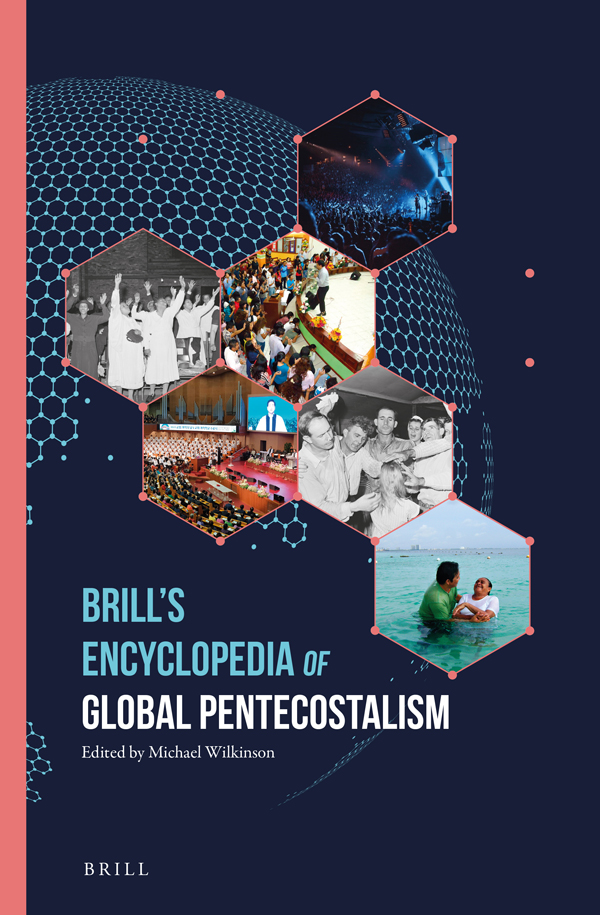
Trends and Issues Affecting Asian Missions and The Next American Spirituality
September 30, 2021 by Cup&Cross
Filed under Events, Featured, Missions, Publication
“Three Trends and Three Issues Affecting Asian Missions” and the figures given by David Barrett present a Macedonian Call to 3.7 billion people with some 9% Christians, which is no small issue in global missions today. At the same time, America becoming the third largest mission field in the world is the obvious antipode of missionary need in the Western hemisphere. The parallels in post-modernity are many.

About 20 years ago, a book called “The Next American Spirituality” summarized the culture of today’s American spirituality and its relation to the apostolic church. The main question is, “What would a theology of the church look like that took seriously the fact that North America is now itself a mission field?”
To answer the question, Gallup and Jones examined how America does Biblical spirituality, using the gathered data to analyze its shift and direction. According to their survey, the marks of the next American spirituality were going to be (in short):
- Bull-market church growth
- Self-centered religion of me and thee
- Hunger for experience – any experience
- Search of roots amid the relativism
- Quest for community resulting in self-belongingness and self-realization
In our current context of ministry two decades later, all of the above signs are evident and true. This is due on hand to the constant shift in the cultural paradigm, as well as the obvious shift in the identity and practices of the Christian church in the postmodern context. It almost seems like instead of being the model, the church is following a model, which not only changes the churches identity but interferes with its original evangelistic goal and global mission.
2021 Catalog of Immigrant Bulgarian Evangelical Churches around the World
 Bulgarian Evangelical Churches in the European Union (2017 Report)
Bulgarian Evangelical Churches in the European Union (2017 Report)
- Bulgarian Evangelical Churches in Germany
- Bulgarian Evangelical Churches in Spain
- Bulgarian Evangelical Churches in England
- Bulgarian Evangelical Churches in France
- Bulgarian Evangelical Churches in Belgium
- Bulgarian Evangelical Churches in Italy
- Bulgarian Evangelical Churches in Cyprus
- Bulgarian Evangelical Churches in Crete
Bulgarian Evangelical Churches in America (2017 Report)
- Bulgarian Evangelical Churches in Chicago (2017 Report)
- Bulgarian Evangelical Churches in Texas (2017 Report)
- Bulgarian Evangelical Churches – West Coast (2017 Report)
- Atlanta (active since 1996)
- Los Angeles (occasional/outreach of the Foursquare Church – Mission Hills, CA)
- Las Vegas (outreach of the Foursquare Church – http://lasvegaschurch.tv)
- San Francisco (occasional/inactive since 2012, Berkeley University/Concord, CA)
Bulgarian Evangelical Churches in Canada (2017 Report)
- Toronto (inactive since 2007)
- Toronto/Slavic (active since 2009)
- Montreal (occasional/inactive since 2012)
CURRENTLY INACTIVE CHURCHES/CONGREGATIONS:
- New York, NY (currently inactive)
- Buffalo, NY (occasional/inactive)
- Jacksonville, FL (occasional/inactive since 2014)
- Ft. Lauderdale / Miami (currently inactive)
- Washington State, Seattle area (currently inactive)
- Minneapolis, MN (occasional/inactive since 2015)
READ MORE:
- First Bulgarian Church in Chicago Opened in 1907
- Gateway Cities for Bulgarian Evangelical Churches
- How to Start a Bulgarian Church in America from A-to-Z
- Unrealized Spiritual Harvest as a Paradigm for Cross-Cultural Ministries among Migrant and Disfranchised Ethnic Groups in America Today
Bibliata.com celebrates 25 years in online ministry by reading through the whole New Testament in one day
One of our first ministry websites, Bibliata.com just celebrated 25 years of ministry online. It began in the fall of 1996 with the sole purpose to reach Bulgarians online with the Bible. We began the Bibliata.com anniversary celebration with an out loud reading through the whole Bulgarian Bible on September 16 involving many churches and Christian communities in Bulgaria and abroad.
After 25 years with several million annual views and visitors, it has become the standard for the Bulgarian Bible online. Through the years, virtually all Bulgarian Bible versions as well as many others in foreign and original tongues were published. Audio Bible, Video Bible, extensive Bible commentary, a national sermon archive, multiple device apps and Bible study platforms are only a few of the projects completed. Additionally, a new Bulgarian translation in the works since 2007 is close to its publication date for the 500th anniversary of the Protestant Reformation. But this is not all…
The story of the Bulgarian Bible online is centered not only in products and projects, but in the very people we work with to create a community of believers, who pray, talk, grow and live together in the footsteps of the Savior. And this is worth much more than just 25 years of work and perseverance…


